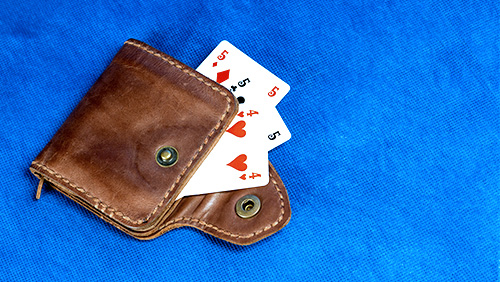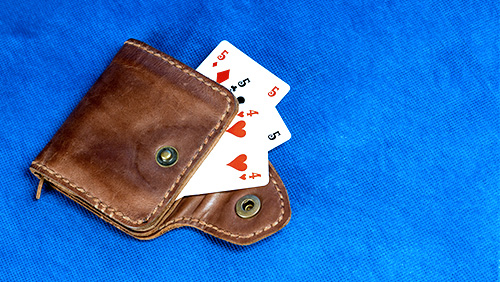Lee Davy sits down with the Las Vegas cash game grinder, Matt Berkey, to talk about his experiences growing up surrounded by addiction, talking about the pain of going broke, and much more.
*To download this audio, right click and save link as*
If the game of poker ever catches Matt Berkey up then, he can rest easy knowing he has a future as a literary genius. Berkey is one of the meanest high-stakes cash game players in Las Vegas, creates a few sizeable waves in the live tournament world, and shares his life experiences on his personal blog titled The Voice Within.
It’s raw, honest, and vulnerable, and I highly recommend that you read it. If you can’t be bothered, and you have never heard of Berkey before then here is his impromptu elevator pitch.
 “I have been a cash grinder most of my life. I come from an athletic background where I played college baseball. I may be relatively unknown to people who haven’t brushed elbows with me, but I have been playing for 12-years, so I’m not exactly a nobody. I hate to call myself a grinder. I have never been one to put in thousands of hours and never really played online. I played live mainly.”
“I have been a cash grinder most of my life. I come from an athletic background where I played college baseball. I may be relatively unknown to people who haven’t brushed elbows with me, but I have been playing for 12-years, so I’m not exactly a nobody. I hate to call myself a grinder. I have never been one to put in thousands of hours and never really played online. I played live mainly.”
Berkey was one of the 49 entrants to feature in the $300,000 Buy-In Super High Roller Bowl at the Aria. It wasn’t a name I expected to see on the list. Berkey came third for $1.1m.
“I have been playing high stakes cash for the better part of four years. I am a poker player by trade, so we find value. Anytime a $300,000 field comes up where they are adding $300,000 and ten businessmen sign up there is no reason not to play. Even though tournament poker isn’t my strongest suit, it’s my career. I can adjust. I was one of the first players to sign up.”
I often wonder how complicated it is for players to source $300,000 so they can compete in an event of this magnitude, so I ask Berkey what the experience was like for him?
“I have been fortunate that there is a small subset of people, who have a ton of faith in me. I have never had to sell to the open marketplace. I put up almost 30%, and I have a very small group of people who take pieces of my cash game action and were very quick to jump on board for this.”
You may have noticed that Berkey kept his elevator pitch strictly professional. However, when you become braided into the heart of his blog you establish that Berkey was born out of the bondage of addiction, and I am interested in learning how his experience helped shape the man he is today?
“I was aware of it {addiction} at a very young age. In certain aspects of my life, I was forced to mature very young because my mum was addicted to drugs, and alcohol to some respect, mainly prescription drugs that turned into harder street narcotics. I saw the worse side of addiction. It’s weird that before her downward spiral, at six years old, when I wasn’t exposed to anything, I was very black and white in my thinking that drugs and alcohol are bad and puppies and rainbows are good. I never lost sight of that mindset. My parents smoked, and I was disgusted in that. I had no problem fitting in at school, and peer pressure didn’t affect me because I had zero interest in drugs and alcohol. Then on top of that with my mother’s downward spiral I got to see the worse aspect of it all, and it made it very easy to make the conscious decision never to drink or take drugs.”
Berkey’s evolution goes against the trend. Typically, irrespective of great intentions, people exposed to addictions at an early age, usually end up experimenting with them as they go through life. Why was Berkey different?
“I find that I am different by nature in a lot of regards. For me, it was a lack of curiosity. Even though I was exposed to the adverse aspects of it, there is still that sense of experiencing it yourself, and I never had that. I don’t know if it’s because I was educated young, or that it’s not in my nature?”
I ask him if it was his interest in sports?
“Maybe, I knew I didn’t have a God-given ability, so I didn’t want to do anything to take that dream away. I don’t know. I have never tried mayonnaise because it doesn’t appeal to me, and it’s not healthy so why dive into it?”
When you bond with addiction, you can see its growth everywhere you look. I asked Berkey about his experiences of addiction within the gambling industry?
“I think you see it a lot less now. The game has been so studied and calculated there aren’t that many people in my world drawn into it for gambling. Coming up you see a lot of degens and my heart breaks for them, and if they were reasonable friends of mine, I would love to help them. I think people are flawed by nature, and if you walk down that path, it’s not up to someone else to remove you from it. You need to learn to recover yourself. My mother was never mentally stable enough actually want to help herself. She may have had moments of clarity, but she was also fighting bipolar disorder, depression, schizophrenia, so even if she had moments of clarity they were saturated in all the mental illness she had.”
One aspect of vulnerability Berkey shares on his blog is the feeling of embarrassment he felt because of his mother’s drug taking, and the fact that he wasn’t privy to the same creature comforts as a lot of his peers. I asked him if he remembered a time when he last felt embarrassed in poker?
“It’s on record, I have gone broke a number of occasions, it’s the nature of the beast for people like me who have been playing for 12-years. The very last time I went broke in 2012 I had $300,000 to my name 18-months prior, and I made horrible business decisions. And I should. I don’t have a business background; I don’t have a business acumen so I made all the mistakes. I backed too many people, I played way too big, did everything to put myself under financial strain and I eventually went broke.
“It was such a large gap between my ability and my actual net worth that I was completely embarrassed that I was grinding $2/$5 when I was playing $25/$50, months prior. If I had to suffer through it again, I think I would be more open and honest about it. Transparency and self-awareness go a long way. The process of going broke allowed me to self-actualise and reach a more mindful state where who cares who judges you – it’s such a subjective game.”
When you are under the cosh like Berkey was in 2012, it’s sometimes difficult for players to leave their ego at the door and drop down in stakes. I asked Berkey if he tried to remain in the game by borrowing money during this time?
“I do have a mindset of playing to your ability and not your bankroll, but when you have nothing, it’s different. I never borrowed. I found a way. I did some coaching. I downgraded my car, and that was a humbling moment. I got some money back when I sold it, and I was using a few thousand dollars here and there to run it up. I would play $2/$5, and when I had enough I would play $5/$10. It was a rinse and repeat cycle that allowed me to last 18-months without really accruing much debt; I think I had $5k credit card debt paying bills. Then I had a big WSOP and won half a million and vowed it would never happen again.”
What is it like emotionally to blow through $300,000 so quickly and then find yourself staring at the coalface without a lamp on your helmet?
“I went through the whole roller coaster. Not just through the 18-months, but daily my routine was to wake up stagger to the couch and take a nap. I just didn’t have it in me. I would eat, hit the gym, and I would be revived. I would spend the next 8-10 hrs working on my game, my mental health, self-awareness, all of these things that are necessary for any career especially one as cut throat as poker. I wanted to be the most well-rounded version of myself as possible at the end and find where all these pitfalls came from. I know there is variance in the game, I know my ability, but the two didn’t seem to line up. So I wanted to make sure the next time I had a big opportunity I not only capitalised on it but was able to take a huge step forward.”
And how did Berkey’s friends respond during his moment of need?
“I am very fortunate. I have had the same group of friends since kindergarten. Nobody was embarrassed that I had gone broke. They were proud of the fact I was trying. I have very few friends in poker, and I keep it that way on purpose. Those close to me provided me with opportunities as well. I am incredibly blessed when it comes to a support group. I think a lot of that comes from lacking aspects in the family growing up and I allowed my friends in to substitute from where my parents left off.”
You can’t recover from something like that without going back to basics and doing the work. I ask Berkey what ‘doing the work’ looks like to him?
“It’s a combination of abstract dealing with the people and getting into the nitty gritty of the psychology, and then just the linear thought process like studying the math and GTO. It’s thought that I am so unorthodox and anti-GTO, but don’t see it that way. I think any good player will have a good foundation in GTO and math and all the logical lines, but the main creative players are going to branch off of that and take some of the significant exploits that are available in live play. I will be the first to admit I would get eaten alive online without putting in time, study, and effort but there are very few that can compare to me in a live game.”
There are very few who could compare to him with a quill in his hand either.
